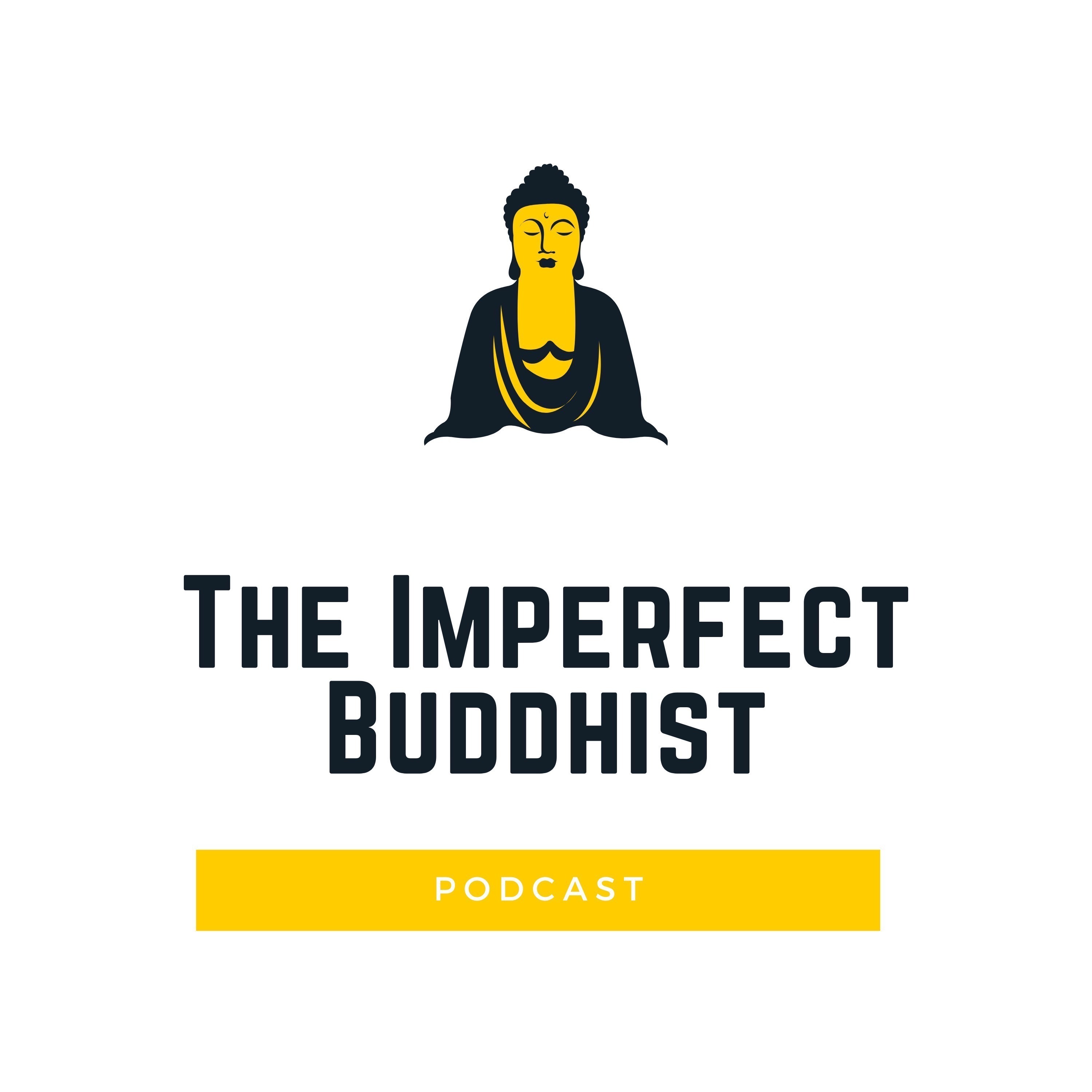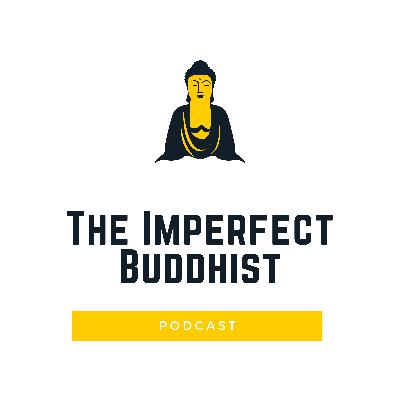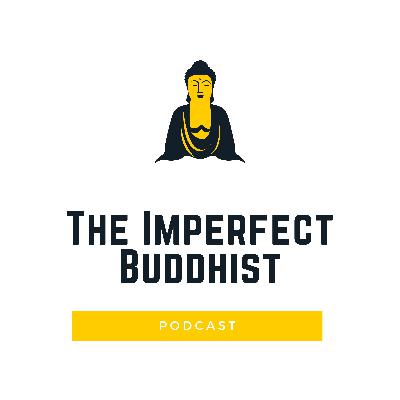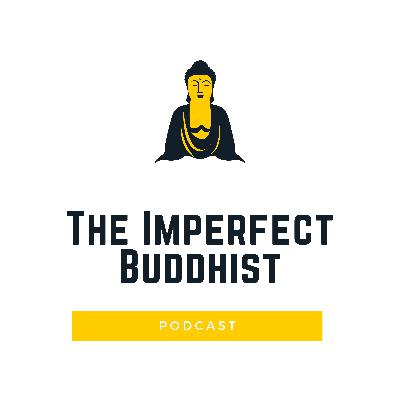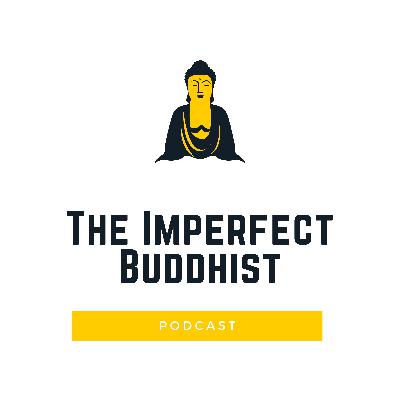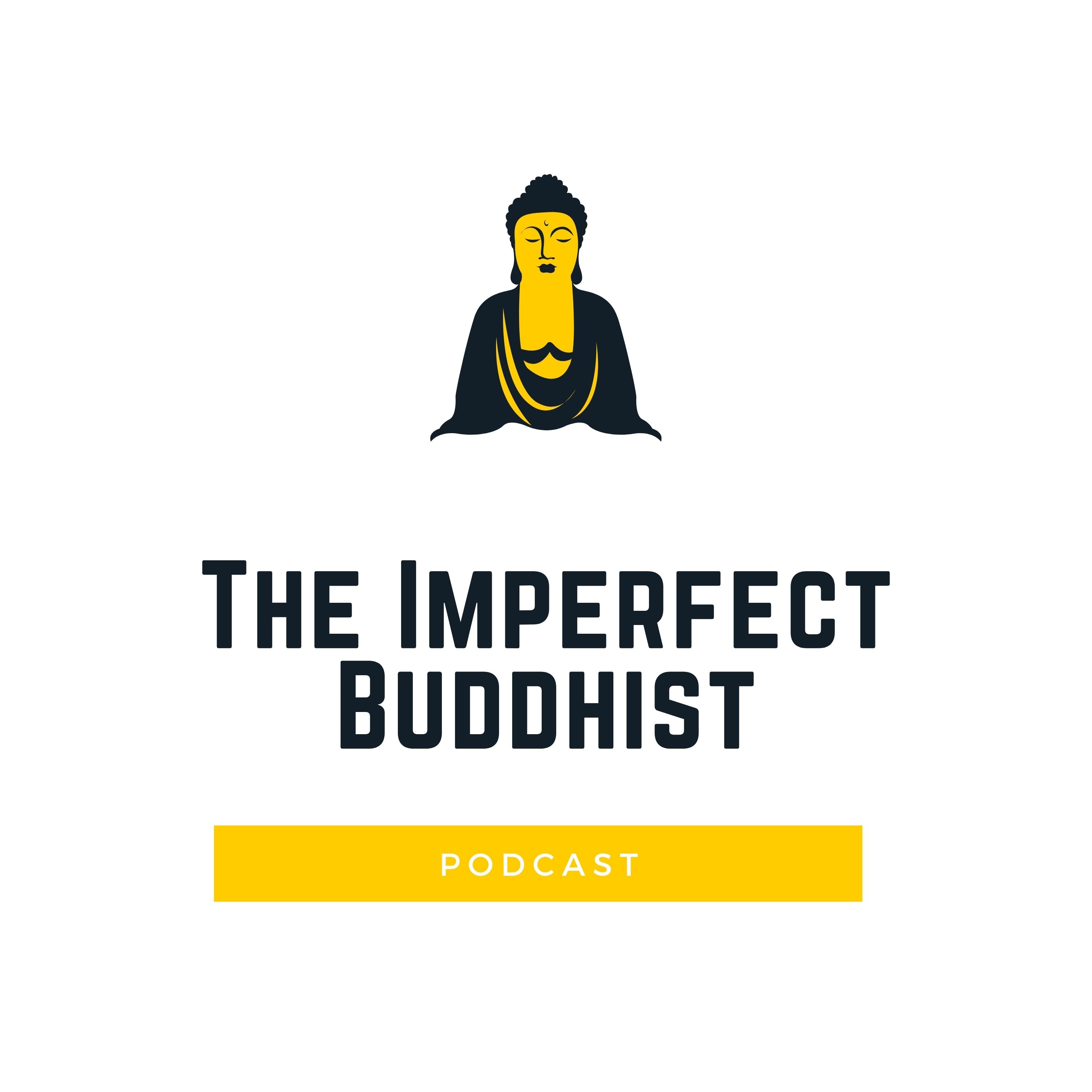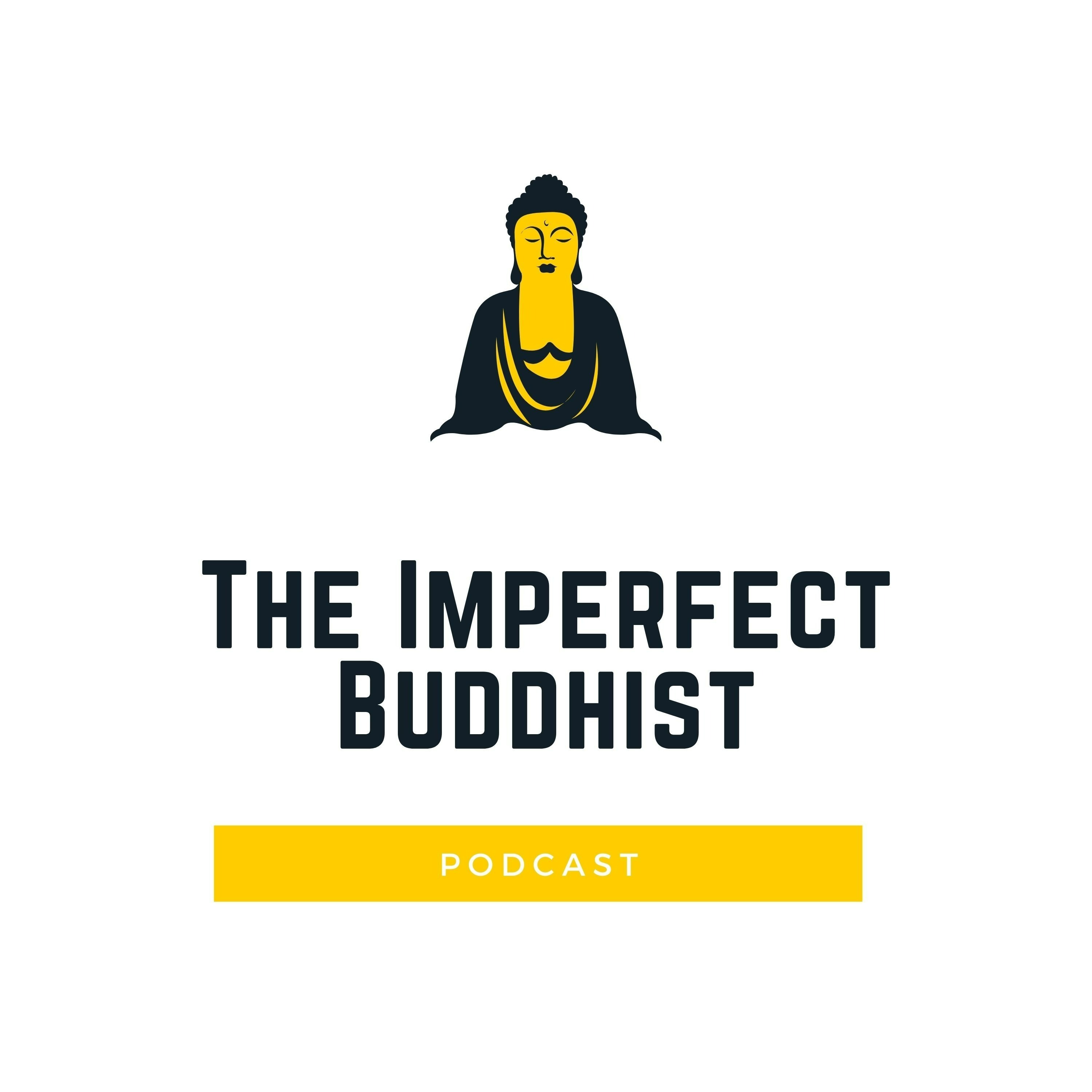Buddhism & Everything Is Usable
Description
About this episode:
In our fast-paced modern world, the pursuit of mindfulness and spiritual growth can often feel elusive. However, at the heart of Zen philosophy lies a profound truth: everything in life is usable for awakening.
Embracing this concept means seeing imperfection, challenges, and difficulties as tools for personal growth and enlightenment. It's a pivotal moment in our spiritual journey when we realize that suffering and imperfection can crack open the shell of ego, leading to humility and compassion.
Eckhart Tolle, in "The Power of Now," beautifully captures this idea: "If you had not suffered as you have, there would be no depth to you as a human being. No humility, no compassion. Suffering is necessary until you realize it is unnecessary."
The key is to confront discomfort without judgment and listen to our inner wisdom." Thich Nhat Hanh, in "The Miracle of Mindfulness," reminds us that even mundane activities can be opportunities for awakening.
Mundane experiences become gateways to mindfulness and a deeper understanding of the present moment. Positive experiences, too, can be savored without worrying about their end, teaching us to appreciate the now.
Challenges, whether they come in the form of new experiences or difficult emotions, have the power to transform us, shedding illusions of weakness and conditioning, revealing our true selves illuminated with awareness.
In conclusion, the concept that "everything is usable" reminds us that every moment, every experience, and every emotion in life can be a stepping stone on our journey toward awakening. Embracing imperfection and challenges with open hearts and minds unlocks our potential for personal growth, mindfulness, and a deeper connection to the world around us. Ultimately, it is through these experiences that we become more fully alive and aware of the beauty of our existence.
Transcript:
Welcome to The Imperfect Buddhist, where we discuss present moment awareness and incorporating Zen principles into modern life. My name is Matthew Hawk Mahoney and today's episode is titled, Everything is Usable. Today's episode is all about using what is at hand, what is in our life for awakening, whether that's pain, joy, or just boredom.
We'll talk about the concept of everything is usable. The concept that we can use all of life's experiences for our own awakening.
At some point in our spiritual life, we decide to embrace imperfection. We start to embrace challenges in our life. This will be a shift for us. Some people, maybe if their parents were on some different level, maybe they helped their children accept and embrace challenges and difficulties. But for the most part, most people will have to learn how to do this in their own way. At some point on the spiritual path, we begin to embrace
difficulty and imperfection in our life. We start to see imperfection and difficulty as teachers. We start to see imperfection and difficulty as fodder for awakening, something that can fuel our personal awakening and the endeavor of meditation.
Eckhart Tolle in his book, The Power of Now says, If you had not suffered as you have, there would be no depth to you as a human being. No humility, no compassion. Suffering cracks open the shell of ego. And then comes a point when it has served its purpose. Suffering is necessary until you realize it is unnecessary.
This idea that suffering or imperfection can be used in our own awakening is something that I'm becoming reacquainted with in my own practice. My wife and I this year have been endeavoring to reduce our technology use and to start picking up old hobbies or being comfortable with it just being quiet in the house staring out the window. And so I've been noticing that through eliminating our TV use or trying to limit our technology use that I'm...
Becoming more acquainted with this underlying feeling of dissatisfaction, like this kind of anxiousness that's been living underneath the surface and festering as I've been indulging in a lot of screen time. I have had a couple moments where I'm feeling uncomfortable and I'm like, I don't want to feel this. I want to distract myself again. I want to get away from this feeling. I don't like it. And sometimes it wins. Sometimes I start watching stuff on my phone as I stuff my face and eat my lunch.
And sometimes it doesn't. Sometimes I'm able to stick with it and feel it and go through it. And then I'm able to ask myself, is there anything I can do differently that may make an impact on how I'm feeling? I started picking up rock climbing again, and soon I'll be doing some yoga at the rock climbing gym. And I noticed a big change in my body. Rock climbing for me is a really mindful sport, present as I'm doing the moves necessary.
So this little slight change to my routine is starting to help me.
What I'm talking about is a recognition in your own presence. When you embrace whatever suffering you're feeling, you embrace it, you feel it. You're not mad at it. You're not trying to push it away, but there's a still voice or a voice that comes up where you could say, oh, maybe there's something I can change that would help me. This is a little bit different than pushing it away or being upset about how you feel, adding an extra layer to the pain that you already have. It's a quieter, still, wise voice that just says.
Maybe there's a different way. Coming back to this feeling of dissatisfaction. Maybe some of that is pretty normal. Maybe there isn't a whole lot I can do to change it. Maybe that dissatisfaction is inherent with the current way a lot of people's lives are set up.
Thich Nhat Hanh said, if while washing the dishes, we think only of the cup of tea that awaits us, thus hurrying to get the dishes out of the way as if they were a nuisance, then we are not, quote, washing the dishes to wash the dishes, end quote. What's more, we are not alive during the time we are washing the dishes. In fact, we are completely incapable of realizing the miracle of life while standing at the sink. If we can't wash the dishes, the chances are we won't be
able to drink the tea either. While drinking the cup of tea, we will only be thinking of other things, barely aware of the cup in our hands. Thus, we are sucked away into the future and we are incapable of actually living one minute of life. Thich Nhat Hanh, the miracle of mindfulness.
Mundane activities can be a doorway to awakening for us. They are opportunities for mindfulness and presence. And there is no mundane activity. Everything becomes sacred by our awareness. When we tap in and we live the philosophy that everything is workable, everything is usable, then everything becomes sacred. Everything becomes our teacher and we are awakened and enlivened by our life, just as it is.
We can take the awareness we cultivate through our formal practice of meditation, zazen or mindfulness practice, and we can take that into anything we do. We can take it into doing the dishes. We can smell the soap. We can feel the gross outness because, man, maybe we didn't do dishes for a week, which seems to be the case for me sometimes. We can feel the heat of the water on our hands and listen to the scrub brush as it breaks away the dried-on food from a whole week, you pig.
But we can tap into what's happening in that moment. Where's our attention? Is it on the present? Is it in this moment? And if it isn't, maybe we can ask ourselves why. And we don't wanna get into a bunch more thinking. But if it's a simple answer, it's usually true. Sometimes when I ask myself, why am I not present? Well, doing the dishes or rock climbing or driving to pick up my wife. It's because either A, I'm just not aware and I'm letting my mind drift, which is natural.
Or B, there's something that in my life right now I'm not wanting to feel, I'm not wanting to deal with. I would rather it not exist. And so I purposely or unconsciously put my attention somewhere else. I daydream or I uninhabit my life.
Everything is workable, even positive experiences. They may not have the pull that suffering does, because suffering really can pull you right into the moment, right into your body, because it's so intense. Positive experiences can teach us a lot. Yeah, it feels, number one, it feels great to have a positive experience, something that goes our way, or to spend time with someone we really love and enjoy, where moments flow together, and there's a sense of ease and happiness and joy.
It's pretty easy to be mindful in those moments, although a lot of people aren't. They're worried about losing that moment. When's it gonna be over?
I know that I'm guilty of that with my marriage. My marriage I'm very happy in. I love my wife and my partner, but I can't help but think of what happens when it's gone. How am I gonna feel? I don't wanna lose this. I can tap in right now and experience this moment, cherish it, and realize that it is fleeting, and that all the warring in the world will not change this moment from not being at some point, whether that's 10 minutes.
An hour, a day, a year, 50 years, there was going to be a moment where this experience will be no more. When we tap into the present moment, we experience the joy of life. And we can also see that it's transitory

